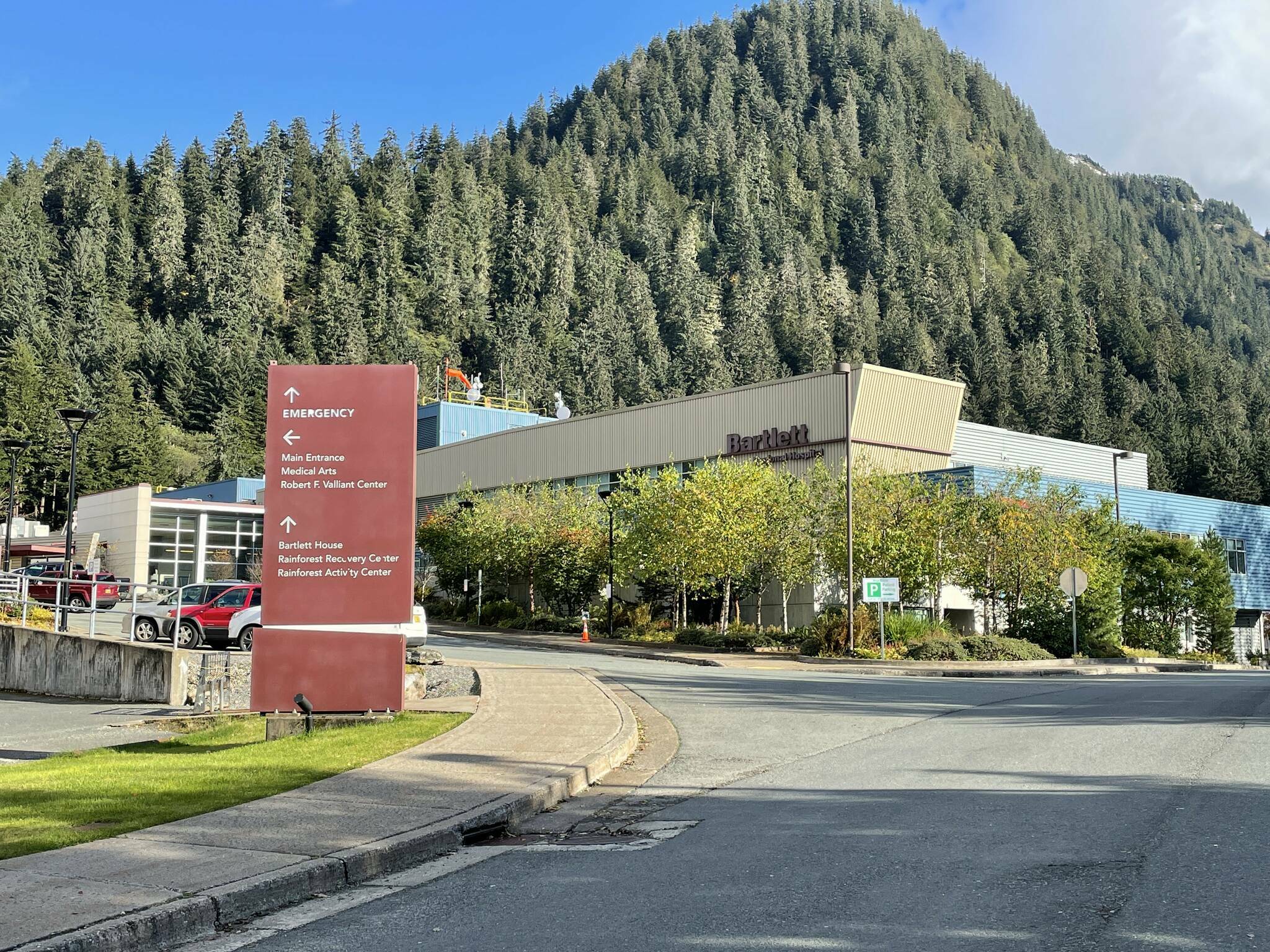I am addressing concerns raised in the article, “Inhumane Treatment of Behavioral Health Care Patients at Bartlett Regional Hospital” (Juneau Empire, Aug. 2, 2023).
Based on my nine years on the Bartlett Board of Directors until January 2023, and firsthand experiences with family members’ serious mental illnesses, I have some insights regarding BRH’s behavioral health services and challenges.
Bartlett’s facilities include a 12-bed adult mental health unit which, due to staff shortages, occasionally operates under capacity. BRH also maintains the 16-bed Rainforest Recovery Center for addiction disorders and developed a four-bed Withdrawal Management Unit. Both these units have had frequent staffing difficulties, with the latter currently not functioning as planned.
Back in 2004, recognizing our community’s needs, the BRH board voted to establish a child and adolescent mental health unit (CAMHU). Feasibility studies were conducted and a new facility was designed by a local architecture firm. By 2012, the community showed its support by voting to approve the use of sales tax funds for this project.
In 2014, after my initial appointment to the BRH board, I was appointed chair of the CAMHU Special Committee. I also created a stakeholders group comprising representatives from various organizations involved with behavioral health, including the Juneau School District and police department.
By 2016, an RFP for a partner organization to manage a 28-bed psychiatric residential treatment center, with four youth crisis stabilization beds, was issued. There was criticism of this RFP and, due to no proposals submitted, the hospital CEO recommended shelving the project.
Bartlett also continued to expand outpatient psychiatric services (BOPS) for all age groups. However, staffing shortfalls have constrained these services as well.
The State of Alaska, aligning with national guidelines from the Substance Abuse and Mental Health Services Administration (SAMHSA), is currently promoting behavioral health crisis stabilization services. These guidelines stress the importance of a high-tech crisis call center, 24/7 mobile crisis response teams and comprehensive crisis stabilization programs. It must be emphasized that behavioral health crisis stabilization differs from typical emergency department (ED) services. An efficient mobile crisis response system, bypassing the ED to transfer patients directly to a crisis stabilization center, is necessary for the program to be effective. It also reduces the need for police responses so they can focus on law enforcement priorities. Capital City Fire/Rescue could provide this service, but it requires medical direction and leadership from experienced psychiatrists.
In response, Bartlett appropriated funds to build an eight-bed crisis stabilization facility for adolescents and adults. The “Aurora Behavioral Health Center” was completed in June 2023 but, due to staffing shortages, it is not yet providing all planned services.
As the chair of the BRH Physician Recruitment Committee for a few years, which approved an ongoing priority for recruiting psychiatrists, the recent departure of four board-certified psychiatrists and other staff from BRH, due to management issues, was very disheartening. For the success of the hospital’s behavioral health services to meet the needs of our community, I hope these professionals can be persuaded to return to hospital service. Temporary (locum tenens) psychiatrists can help fill gaps in coverage, but they should not replace local providers who have better understandings of our hospital and staff, and are committed to our community.
Having devoted millions of dollars of funding and countless hours of staff and board members’ time over many years, Bartlett Regional Hospital has made considerable progress in enhancing its behavioral health services, including services for children and adolescents. While we have the necessary infrastructure for a top-tier regional behavioral health system, staffing remains a chronic problem. It is imperative that BRH leadership prioritize the recruitment and retention of skilled personnel, including qualified psychiatrists, to ensure 24/7 operational excellence in behavioral health services.
This should help produce good patient and client outcomes, meet most community behavioral health needs, and maximize third-party reimbursements for financial sustainability. It also would solve the problem described in the above-referenced Juneau Empire article.
• Mark S. Johnson, a Juneau resident for 44+ years who has a master’s in public administration degree, retired from the Alaska Division of Public Health in 2004. Since then he has provided health-related voluntary services and consultations.

